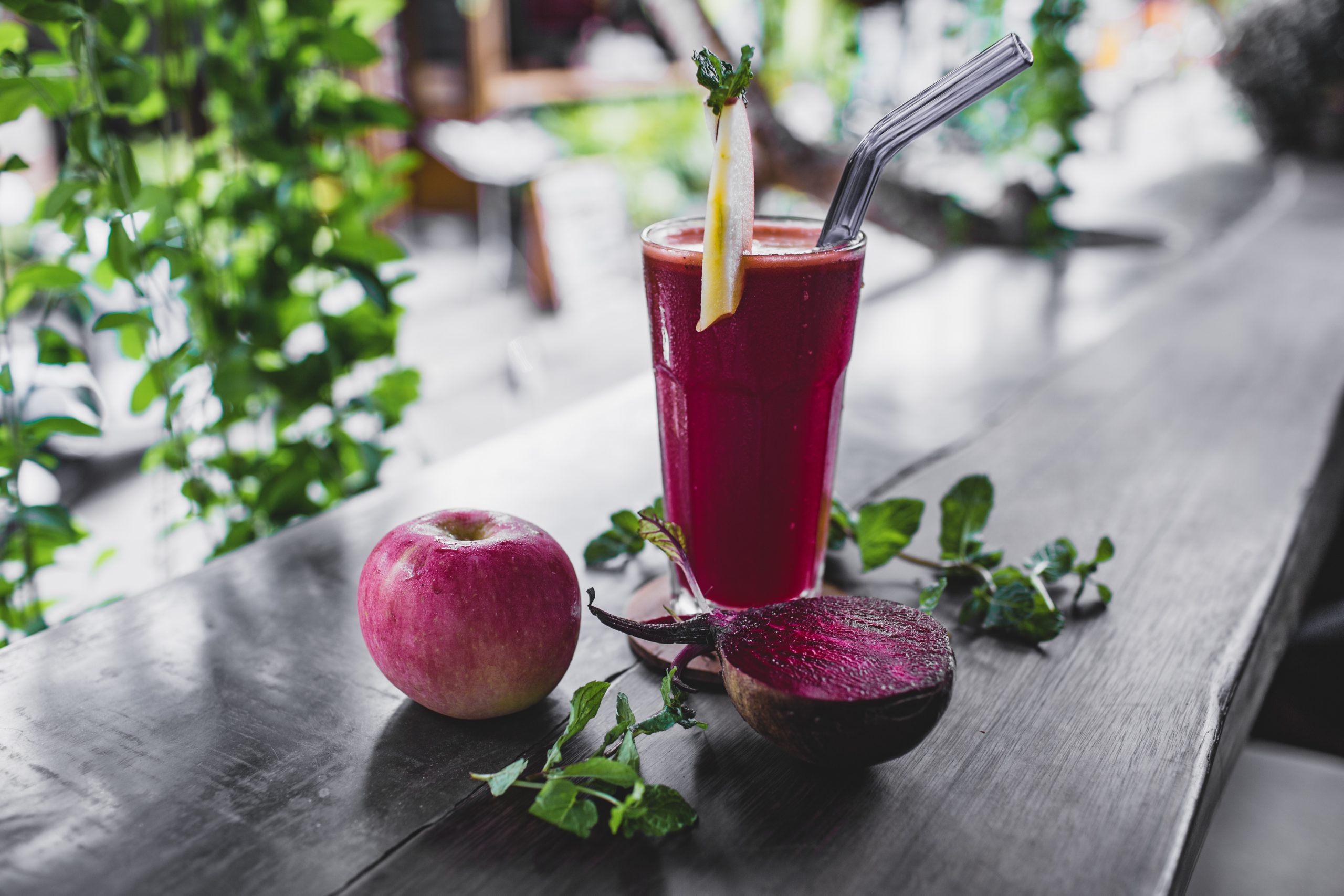S
o this is me again, Donna… When it comes to competition in the world of juicers, things can get pretty heated. But just like with any other product, you will always find those die-hard fans who swear that “A” is better than “B,” and they would never be caught dead using anything other than the product they find superior.
While many juicers are out there on the market, two of the biggest names people are familiar with are the Omega brand and the Champion brand. And today, we’re going to take a look at these two brands, their histories, compare their performance and see who comes out on top as the Juicing Champion.
The Omega company was first founded in 1985 under the name Olympic Products by Robert Leo. Before creating his own company, he had already spent 20 years in the juicing industry working for another company where he helped improve already existing designs by listening to what the customers were saying.
From 1988-2008, Omega developed a variety of juicers from citrus to centrifuge to celery juicers. One of their most significant accomplishments happened in 2005, where they were able to design a vertical low-speed juicer which helped to slow down the oxidation (the breakdown of the nutrients and enzymes) and allowed the juice to be stored for up to 72 hours!
Since then, they have continued to improve their products, create new ones like the Juice Cube, and continue to be very involved when it comes to spreading the word about taking control of your health and wellness through the use of their products.
Another fantastic thing about the Omega brand is the fact that they have the most extended warranty available in the industry. All of their products come backed by a 15-Year Warranty which includes 5-year parts and a 10-year motor warranty. Their USA-based customer service is always quick to help and resolve issues.
I mean, honestly, just based on all of these facts alone, it’s clear to see that Omega company is a force to be reckoned with!
Champion juicers are made under the manufacturer, Plastaket. Plastaket was first founded in 1950 and manufactured its first juicer for a company in California in 1953. Finally, in 1955 they started their own juicer, the Champion Juicer.
From 1955-1967, engineering improvements continued to take place, allowing for better extraction, cooler operation, and weight reduction.
In 1977 they developed a Grains Mill attachment which gave their juicer the ability to produce flour and grind coffee beans.
In 1993 they introduced a safety feature that would not allow the juicer to operate if it wasn’t assembled correctly. Then, in 2011 they released a Greens Attachment for the Champion 2000 Juicer. Finally, in 2016 they came out with the Champion Elite 4000, which featured a smaller design and the ability to juice wheatgrasses and greens.
Champion states that their warranty is good for five years from the date of purchase regarding regular use. The wear and tear of the grinding auger are covered for one year, and motor defects caused by motor shaft seal failure are covered for up to three years.
As you can see, the Champion brand is more focused on improving what they have than creating new machines, and that’s nothing to scoff at!
Let the Battle Begin!
Okay, so now that we’ve had a little history lesson regarding each company, what they offer, how they evolved, etc., let’s take a closer look into their juicers to see who comes out on top!
First off, both juicers are what we refer to as masticating juicers. This means that they literally take the produce, greens, etc., that you put into them and mash and crush them against a screen. The juice runs through the screen while the pulp is pushed into a separate container.
First up, Omega
When it comes to the Omega brand juicers, the first thing that I noticed is that they have A LOT more products offer. We’re not just talking your basic juicers here. We’re talking celery juicers, cube juicers, citrus juicers, horizontal and vertical designs…I mean, the options they offer are IN-SANE!! It’s not only the variety of what they have, but I also love the versatility of some of their products.
For example, their celery juicers are not only useful for celery but they can also be used to make wheatgrass juice, nut butters, citrus juices, nut milks…I mean, talk about value!
Their versatility also leads me to my next point: their juicers are great for the softer produce and greens and the denser produce. Their juicers are also helpful for mincing and chopping as well and typically come with the attachments needed to perform all of these tasks.
Remember earlier on, I had mentioned how they developed the heat-reducing output technology? Their juicers operate at 80 RPMs. This literally results in maximum nutrients, enzymes, and vitamins in your juices! And you can create larger batches since the juice will last for up to 72 hours.
You can also be sure that you’re getting the maximum amount of juice from whatever you happen to be juicing because the automatic pulp ejector leaves you with very dry pulp.
Another plus? These machines are quiet. That means if you’re an early bird and you’re trying to get your juice on, you won’t have to worry about waking the entire house.
Next up, Champion
While Champion itself has been around for quite some time, they have a limited variety of products. They basically have just been improving on the original juicer they manufactured. They can take on wheatgrass and can be used as food processors like Omega, but you’re going to have to buy those attachments separately.
Those using the Champion juicers have also mentioned that while it’s great for juicing fruits and veggies, juicing anything softer and more fibrous doesn’t seem to turn out as well.
One of the most significant differences and some see it as a plus, is that the Champion juicers run at 1725 RPMs. What does this mean? This means that you’re going to be able to make batches of juice quicker than the Omega juicers. Champion juicers are touted as being the fastest masticating juicers on the market. However, the faster speed does come at a price. While you’re still getting okay quality, it will come out with more pulp and more foam.
The Final Round
The Omega juicers have more versatility; they come with the attachments you need, produce better quality juice, and have a better warranty. It’s just a better investment, in my opinion. These are juicers that can grow with you on your journey to living a healthier lifestyle. You don’t have to jump into making nut butters, alternative milks, and pasta from the start, but it’s nice to know that those attachments are already included for when you’re ready!
With Champion juicers, you’re still getting a moderate quality juice, and it’s a faster rate. So if you’re not someone who is as concerned with super-high quality juice and is more about speed, Champion is the way to go. They still offer a warranty on their products, and their website is easy to navigate should you need any replacement parts.
Both Omega and Champion brands have many people praising their ease of use and not being a hassle to clean. This is important because when you’re just starting out, using a machine that’s too complicated can often be a deterrent. That juicer you just bought now ends up becoming a costly kitchen decoration, or it gets in the way. It’s also worth noting that while the Omega juicers come with a cleaning brush, you need to purchase one for the Champion juicers separately.
When we look at the price range comparison, the Omega juicers range from $250 to $400, depending on the model you’re looking at. The Champion juicers that are available run around $400.
The Results Are In…
While Omega and Champion both put up quite a fight, I honestly have to declare Omega as the clear winner.
With all of the above info and weighing the pros and cons of the Omega vs. Champion juicers, I feel pretty confident in saying that if you’re going to drop that amount of money and are looking for getting the best value for your dollar, then Omega is the way to go. The Omega juicers seem to offer so much more in terms of usability, durability, what you actually get, and their warranty is the best one you’re going to find.
Yes, the Champion juicers are durable as well, and they can cut down significantly on juicing time. However, when it comes down to it, you’re paying $400 for a machine that you still need to buy extra attachments for if you want to make wheatgrass juice, and even then, their ability to juice leafy greens or more fibrous produce leaves a lot to be desired.
Investing in your health is always a winning situation. However, when comparing the Omega juicers vs. the Champion juicers, the clear winner here where value meets versatility and user-friendliness is Omega.





